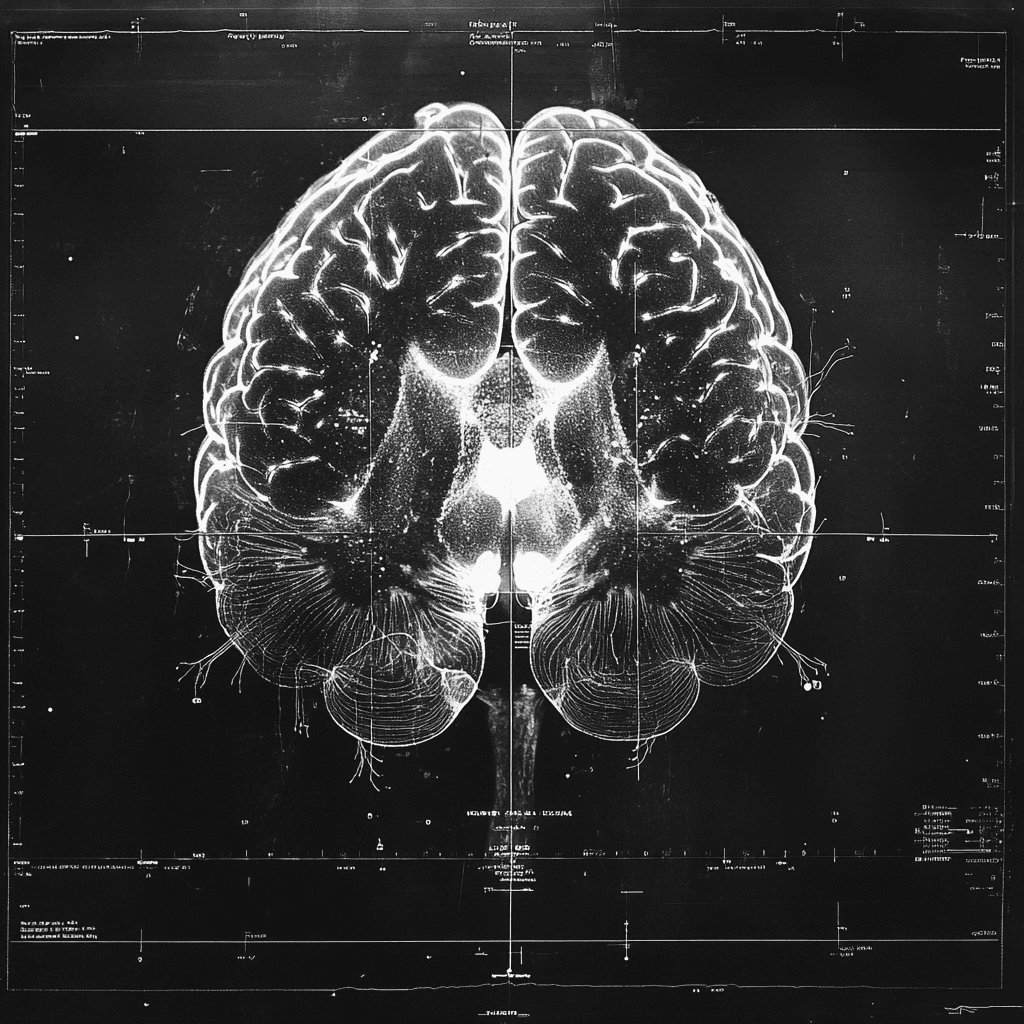
Lit up like stars in the night sky, bright spots are the most common feature a radiologist sees on a brain scan when a patient has unhealthy small blood vessels. These bright white spots signify white matter hyperintensity.
Such lesions are not a good sign because they’re linked to dementia. But groundbreaking research shows they could be even worse. The new scientific evidence points to these white spots not just being associated with dementia but may be an underlying cause of Alzheimer’s disease.
Here’s what you need to know and what you can do to protect your brain…
Key Takeaways
- White matter hyperintensities (WMHs), visible as bright spots on brain scans, are abnormalities in the brain's nerve fibers.
- WMHs are common in older adults and can predict cognitive decline decades before clinical symptoms emerge.
- High blood pressure is a significant risk factor for WMHs. Managing hypertension has been shown to slow the progression of WMHs.
What Are White Matter Hyperintensities?
White matter is made up of nerve fibers that transmit electrical signals so your brain’s neurons can communicate with one another.
Abnormalities in the fibers, also called white matter hyperintensities (WMHs), look like lesions and increase with age as the brain begins to accrue small microbleeds in the white matter. WMHs aren’t often seen in young adults but are common in seniors, especially in women with memory problems.
These lesions were originally thought to have no clinical significance, but scientists have now done an about-turn. What the latest research has uncovered is WMHs have a profound impact on the brain, and their extent can predict your physical and mental well-being.
Predicts Dementia Twenty Years Ahead
Researchers have long known that WMHs are linked to many risk factors for dementia, such as age, stroke, high blood pressure, and brain shrinkage. In older adults, the spread of these lesions is linked to an increased risk of cognitive decline and Alzheimer’s. [1]
One study of 1,881 people with an average age of 62 found the volume of WMHs in the brain could predict the onset of dementia up to 20 years later. Another study of 843 New Zealanders, all aged 45, demonstrated that a link between WMHs and early signs of cognitive decline “is detectable decades before clinical symptoms of dementia emerge.”
Preventing or resolving abnormalities with the vasculature of the brain seems very important to avoid dementia. Still, these lesions may be an effect of the disease process and aren’t the cause. Researchers wanted to know the truth.
WMHs - A Key Target For Dementia Prevention
To find out one way or the other, over 30 international scientists collaborated on a major two-year investigation into the effects of WMHs on the brain.
These researchers didn't mess around - they looked at up to 75,000 dementia cases across Europe. They dug deep into people's genetics, checking hundreds of thousands of tiny variations to see if any of them were linked to dementia.
So, what did they find after all this work?
Turns out, having more of these WMHs in your brain does increase your risk of dementia. In fact, out of all the things they looked at related to blood vessels in the brain, WMHs were the strongest predictor of any type of dementia, including Alzheimer's.
First author Dr. Muralidharan Sargurupremraj from the University of Texas said: “Our findings provide converging evidence that WMH is a major vascular factor associated with dementia risk.
“They also support WMH as a surrogate marker for clinical trials to prevent dementia by controlling vascular risk. As vascular disease is a treatable contributor to dementia risk, our findings have broad significance for prevention strategies of Alzheimer’s and dementia as a whole.” [2]
The researchers were so convinced by this that they said we should focus on WMHs to prevent dementia. So, how do you do that?
The good news is, it’s easier than you might think. The strongest risk factor for WMH by far is high blood pressure.
Lowered Blood Pressure Slows WMH Progression
There have been five different studies showing that when people lower their blood pressure, it slows down the growth of these WMHs. So, controlling your blood pressure could be a big deal for your brain health.
But here's where it gets a bit tricky - your age matters.
Surprisingly, part of their research found that high blood pressure was linked to a lower risk of Alzheimer's! Now, the scientists don't think this is true - they chalk it up to some quirks in how the data was collected and analyzed. But it did get them thinking about how we treat high blood pressure in older folks.
They looked at other studies and found something interesting. High blood pressure in middle-aged people does seem to increase dementia risk. But for older adults? Not so much. When they combined data from six different studies, they found that lowering blood pressure had more benefits for younger people than for older ones. That’s right, high blood pressure can reduce the risk of Alzheimer’s if it develops in later life! This is because more pressure is needed to pump blood into the brain through stiffened arteries.
So, what's the takeaway? If you're middle-aged, keeping your blood pressure in check could be crucial for your long-term brain health. But if you're older and have never suffered from high blood pressure, the picture is more complicated, and you should chat with your doctor about what's best for you.
By the way, what’s the best way to check for high blood pressure? Studies show that it’s not in a doctor’s office but at home.
Summary
Recent research highlights that white matter hyperintensities (WMHs)—bright spots seen on brain scans—are not just linked to dementia but may also be an underlying cause of Alzheimer’s disease. Studies reveal that WMHs, associated with aging and vascular issues, can predict dementia risk decades before symptoms arise. A large-scale genetic study has confirmed a causal link between WMHs and increased dementia risk, emphasizing the importance of addressing vascular health to prevent Alzheimer’s. High blood pressure is a key modifiable risk factor, and its management through lifestyle changes and medication can slow the progression of WMHs.
Frequently Asked Questions:
- WMHs are bright spots that appear on brain scans, indicating abnormalities in the brain's white matter, often linked to aging and vascular issues.
- WMHs have been found to not only associate with Alzheimer’s but may also contribute as a causal factor, increasing the risk of the disease.
- Yes, managing high blood pressure can slow the progression of WMHs, which are linked to an increased risk of dementia, including Alzheimer’s.
- Adopting a healthy Mediterranean-style diet, avoiding excessive sugar intake, exercising regularly, taking supplements, and managing stress through relaxation and meditation can help reduce the risk.
What are white matter hyperintensities (WMHs)?
How are WMHs related to Alzheimer’s disease?
Can controlling blood pressure help prevent dementia?
What lifestyle changes can help reduce the risk of developing WMHs?
- d'Arbeloff T, et al. White matter hyperintensities are common in midlife and already associated with cognitive decline Brain Commun. 2019; 1(1): fcz041.
- UT Health San Antonio Research finds causal evidence tying cerebral small-vessel disease to Alzheimer’s, dementia June 21, 2024.
